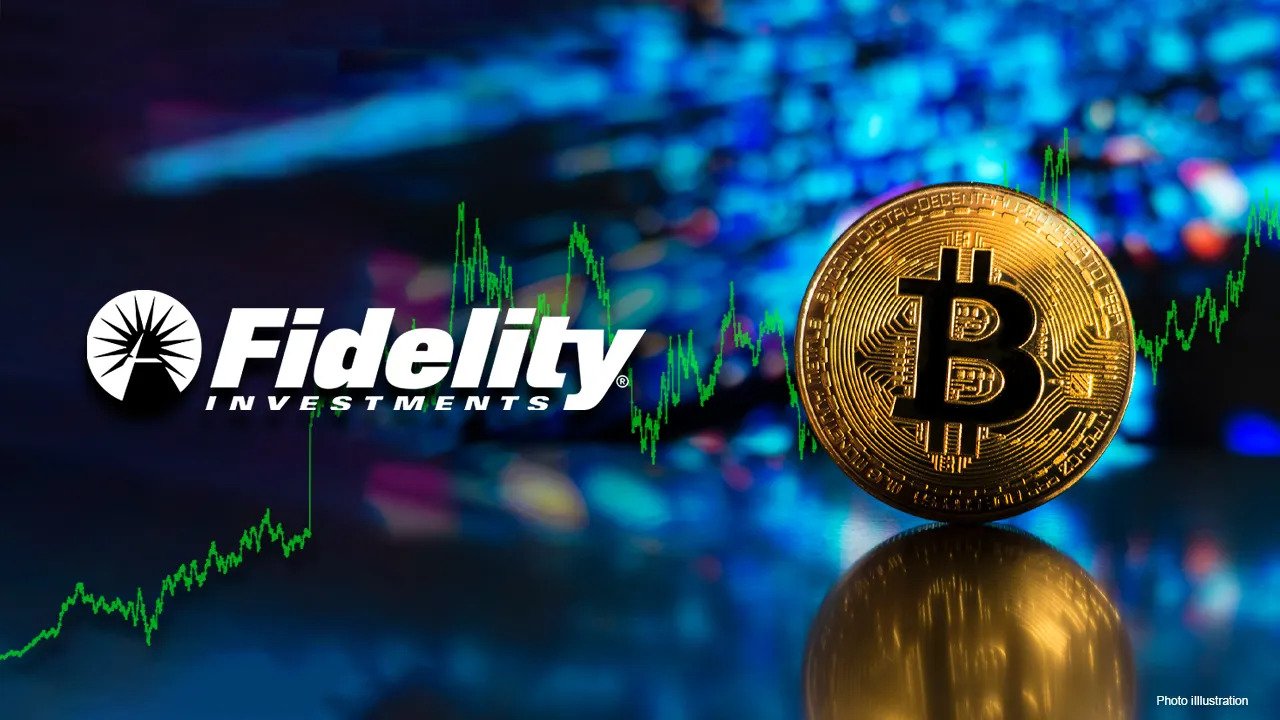Fidelity Crypto Trading | Secure Bitcoin & ETH Access.
Thinking about diving into the world of digital money? It can seem a bit much at first, right? Lots of talk about Bitcoin and blockchain, and where does a big name like Fidelity fit in? Well, this guide is here to break down how you can get started with fidelity crypto, what to watch out for, and why it might be worth your attention. We’ll cover the basics, how to get set up, and some important things to keep in mind.
Thank you for reading this post, don't forget to subscribe!Key Takeaways
- Fidelity Crypto allows individuals to trade cryptocurrencies, with Bitcoin being a major focus.
- Before trading, it’s important to activate your crypto account and complete a risk assessment.
- Understand that crypto is a volatile asset class, and investing carries risks, including the potential loss of principal.
- Fidelity charges a spread on crypto trades, built into the execution price, rather than a direct commission.
- Blockchain technology is changing finance, and with careful planning, you can explore opportunities in this new field.
Understanding Fidelity Crypto Investments

What is Cryptocurrency?
Cryptocurrency is a digital or virtual currency that uses cryptography for security. Unlike traditional currencies issued by governments, cryptocurrencies are typically decentralized, meaning they aren’t controlled by a single entity like a central bank. Transactions are recorded on a public ledger called a blockchain. Think of it as a digital ledger that keeps track of every transaction, making it transparent and hard to tamper with. It’s a new way to think about money and how it moves.
The Investment Case for Bitcoin
Bitcoin, the first and most well-known cryptocurrency, has captured the attention of many investors. Its appeal often stems from its limited supply, which some believe can act as a hedge against inflation, similar to gold. The idea is that because there will only ever be 21 million bitcoins, its scarcity could drive up its value over time if demand increases. This scarcity is a key factor in its investment case. Many see it as a digital store of value. However, it’s important to remember that Bitcoin’s value, like many cryptocurrencies, is primarily driven by supply and demand, distinguishing it from traditional assets like stocks and bonds. This dynamic influences its market price and perceived worth. You can explore more about Bitcoin’s value drivers.
Fidelity’s Role in the Crypto Market
fidelity crypto is stepping into the digital asset space, aiming to provide access to cryptocurrencies for its clients. This move is significant because it brings a well-established financial institution into a relatively new market. Fidelity Digital Assets℠, a separate entity, handles the custody and trading of crypto assets. This means they are the ones actually holding and facilitating the buying and selling of cryptocurrencies. It’s a big step for making digital assets more accessible to a wider range of investors, though it’s still a market with its own set of risks.
Getting Started with Fidelity Crypto
So, you’re thinking about jumping into the crypto world with Fidelity? That’s cool. It’s not as complicated as it might seem, but you do need to know a few things before you start. Think of it like getting ready for a trip – you wouldn’t just hop on a plane without a ticket or knowing where you’re going, right? Same idea here.
Activating Your Crypto Account
First things first, you’ll need to get your crypto account set up. If you already have a Fidelity brokerage account, this part is usually pretty straightforward. You’ll likely need to agree to some terms and conditions, which is standard practice. It’s important to actually read these, even though they’re long. They explain how things work and what you’re agreeing to.
Risk Assessment for Crypto Trading
Now, let’s talk about risk. Crypto is known for being pretty wild. Prices can go up and down a lot, sometimes really fast. fidelity crypto wants to make sure you understand this. They’ll probably ask you some questions to figure out if crypto trading fits with your comfort level for risk. This isn’t just a formality; it’s genuinely about protecting you from investing more than you’re comfortable losing.
Crypto is a new type of investment. It’s not like stocks or bonds that have been around for ages. Because of this, it comes with its own set of risks that are different from traditional investments. You should only invest money you can afford to lose entirely.
Funding Your Crypto Account
Once your account is ready and you’ve thought about the risks, you’ll need to put some money in. You can usually do this by transferring funds from your existing Fidelity accounts or linking a bank account. It’s a pretty standard process, similar to how you’d add money to any investment account. Just make sure you know how much you want to put in, keeping in mind what we just talked about with risk.
Navigating Crypto Trading on Fidelity

So, you’ve decided to dip your toes into the crypto waters with Fidelity. That’s great! But how do you actually make a trade? It’s not quite like buying stocks, but fidelity crypto aims to make it straightforward. Let’s break down how you can execute trades and what you need to know.
Executing Bitcoin Spot Trades
When you’re ready to buy or sell Bitcoin directly on Fidelity’s platform, you’re looking at a spot trade. This means you’re buying the actual asset at the current market price. Fidelity handles the custody of your Bitcoin, so you don’t have to worry about managing your own digital wallet. The process is designed to be similar to trading other assets, but with some crypto-specific details.
Here’s a general idea of how it works:
- Log in to your Fidelity Crypto account.
- Select Bitcoin (BTC) as the asset you want to trade.
- Choose whether you want to buy or sell.
- Enter the amount you wish to trade, either in U.S. dollars or in Bitcoin.
- Review the order details, including the estimated price and any associated fees. Fidelity charges a spread, not a commission, on crypto trades. This spread is built into the price you see when you execute your trade.
- Confirm and place your order.
Understanding Trading Pairs
In the crypto world, you’ll often hear about trading pairs. This refers to the two different cryptocurrencies being exchanged. For example, BTC/USD means you’re trading Bitcoin against the U.S. dollar. If you see ETH/BTC, you’re trading Ethereum for Bitcoin. Fidelity primarily offers trading pairs against the U.S. dollar, which simplifies things for most investors. This means you’ll be buying or selling crypto using U.S. dollars as the base currency.
Minimum Investment Amounts
fidelity crypto wants to make crypto accessible, so they’ve set relatively low minimums to get started. You can typically begin trading with as little as $1. This low barrier to entry is a big plus for those who want to experiment with crypto without committing a large sum of money. It allows for dollar-cost averaging strategies or simply getting a feel for the market’s movements.
Remember that even with small amounts, the inherent volatility of crypto means your investment can change value quickly. Always be aware of the risks involved, no matter the size of your trade.
Key Considerations for Crypto Investors
Getting into crypto can feel like stepping into a whole new world, and it’s smart to think about a few things before you jump in. It’s not quite like buying stocks, and understanding these differences can save you some headaches.
Volatility and Risk Tolerance
Cryptocurrencies are known for their wild price swings. One day a coin might be up big, and the next it could drop significantly. This means you really need to know how much risk you’re comfortable with. If a big drop would keep you up at night, crypto might not be the best fit, or at least, you should start small. It’s important to have a clear picture of your own risk tolerance before investing. A research-based framework can assist investors in comprehending bitcoin’s distinctive attributes and its risk/return profile as an alternative investment [04eb].
Regulatory Landscape
The rules around crypto are still being figured out in many places. Governments and financial bodies are watching closely, and new regulations can pop up. These changes can affect how crypto is traded and its value. Staying aware of what’s happening with regulations in your area is a good idea.
Security and Fraud Prevention
When you’re dealing with digital assets, security is a big deal. There are risks like hacking and scams. It’s important to use strong passwords, enable two-factor authentication, and be wary of unsolicited offers or requests for your private keys. Always double-check website addresses and be skeptical of anything that seems too good to be true. Protecting your digital assets requires diligence.
- Use strong, unique passwords for all your crypto accounts.
- Enable two-factor authentication (2FA) whenever possible.
- Be cautious of phishing attempts and fake websites.
- Never share your private keys or seed phrases with anyone.
The digital nature of cryptocurrencies means that security measures are paramount. Unlike traditional banking, where institutions often provide layers of protection, in the crypto space, much of the responsibility falls on the individual user to safeguard their assets from theft and fraud.
Fidelity’s Commitment to Investors
When you’re looking at crypto, it’s natural to wonder about the company behind the platform. Fidelity has been around for a while, and they’ve built a reputation in the investment world. They’ve been recognized by places like StockBrokers.com in 2025, getting top marks for customer service and for folks with higher net worth. NerdWallet also gave them awards in 2025 for being great for new investors and IRA accounts. This kind of recognition suggests they take their role seriously.
Commission Structure for Crypto Trades
Let’s talk about fees, because that’s always a big one. For crypto trades through Fidelity Crypto®, you won’t pay a direct commission. Instead, they have a spread. This spread is built into the price you get when you buy or sell. It’s calculated as the difference between what fidelity crypto Digital Assets℠ pays to fill your order and your execution price. This spread is capped at 1%. It’s important to remember that other fees could pop up, and these fee structures can change.
Fidelity’s Recognition in the Investment Industry
Fidelity has a history of being recognized for its services. For instance, in early 2025, StockBrokers.com ranked them highly overall and specifically for customer service and serving high-net-worth investors. They were evaluated on things like investment options, trading platforms, research tools, and ease of use. Earlier, in February 2023, Investopedia also named them a top online broker, highlighting their low costs and ETF selection. These awards aren’t just shiny badges; they reflect how the company is viewed by industry experts.
Understanding Investment Risks
It’s really important to remember that investing, especially in something as new as cryptocurrency, comes with risks. The value of your investments can go up and down, meaning you could make money or lose money. Fidelity makes it clear that past performance doesn’t predict future results. They also state that any information they provide is for educational purposes and isn’t tailored to your specific situation. Before you make any decisions, it’s a good idea to think about your own financial situation and talk to a professional if you’re unsure.
Investing involves risk, including the risk of total loss. This is especially true in the volatile world of digital assets. Always do your own research and only invest what you can afford to lose.
The Future of Digital Assets with Fidelity
The world of digital assets is always changing, and it’s exciting to think about where it’s all headed. Fidelity is keeping an eye on these shifts, and they’re positioning themselves to be part of what’s next. It’s not just about Bitcoin anymore; the whole blockchain technology is opening up new possibilities.
Blockchain Technology’s Impact
Blockchain, the tech behind cryptocurrencies, is more than just a way to record transactions. It’s a system that can make many different processes more transparent and efficient. Think about supply chains, voting systems, or even digital identity – blockchain could change how these work. Fidelity is exploring how this technology can be applied beyond just trading digital coins. This foundational technology has the potential to reshape industries.
Long-Term Holding Strategies
When you invest in digital assets, thinking long-term is often a good idea. Many people who buy cryptocurrencies plan to hold onto them for years, hoping their value will grow over time. This is sometimes called a “HODLing” strategy. It means you’re not trying to make quick trades but rather building a position for the future. It’s important to have a plan for how long you intend to hold your assets and what your goals are. Remember, past performance doesn’t predict future results, and digital assets are known for their ups and downs.
Sharing in Emerging Field Dividends
As the digital asset space grows, new opportunities might emerge. Some projects might offer ways for holders to earn rewards, similar to dividends from stocks. This could be through staking, where you lock up your digital assets to help secure a network, or other participation methods. Fidelity is looking at these developments, aiming to provide access to a wider range of digital asset opportunities as they mature. It’s a dynamic area, and staying informed is key to making smart choices about your investments in this evolving landscape. You can find more information about the evolving digital asset landscape at Fidelity’s crypto page.
Investing in digital assets carries significant risk. Their value can change rapidly, and you could lose money. It’s important to only invest what you can afford to lose and to do your own research before making any decisions.
Wrapping Up Your Crypto Journey with Fidelity
So, we’ve gone over a lot about getting into crypto with Fidelity. It seems like they’re trying to make it easier for people to get involved, even if you’re new to this whole digital asset thing. Remember, though, crypto is still pretty wild and unpredictable, so it’s not for everyone. Always do your own homework and only put in what you’re okay with potentially losing. fidelity crypto offers tools and access, but the actual investing decisions are all on you. Good luck out there.
Frequently Asked Questions
What exactly is cryptocurrency?
Think of cryptocurrency as digital money. It’s not like the coins or bills in your pocket. Instead, it’s online money that uses special codes to keep transactions safe. It doesn’t have a physical form and isn’t controlled by any single bank or government, which makes it different from the money you use every day.
Why do people think Bitcoin is a good investment?
Bitcoin is often seen as a good investment for a few reasons. Firstly, there’s a limited amount of Bitcoin that can ever be created, kind of like gold. This scarcity can help its value go up. Also, it’s not controlled by any one country or bank, making it independent. Many big companies are also starting to accept or trade it, which adds to its importance.
How does Fidelity help with crypto investments?
Fidelity provides a platform where you can buy and sell cryptocurrencies. They handle the technical side of things, making it easier for you to get involved. They also have tools and information to help you understand the risks and how to trade.
Is investing in crypto safe?
Investing in crypto comes with risks. The prices can change very quickly, meaning you could lose money. It’s also important to protect your digital money from hackers or scams. Fidelity takes steps to keep your investments secure, but it’s crucial for you to be aware of potential dangers like fraud and market ups and downs.
What are the costs of trading crypto with Fidelity?
Fidelity typically doesn’t charge a direct fee for buying or selling crypto. However, they do add a small amount to the price, called a spread, which is how they make money. This spread is usually a small percentage and is included in the price you see when you make a trade.
Can I lose all the money I invest in crypto?
Yes, it’s possible to lose all the money you invest in cryptocurrency. Crypto is a very unpredictable investment, and its value can drop significantly. It’s important to only invest money you can afford to lose and to understand that there’s no guarantee you’ll make money.













